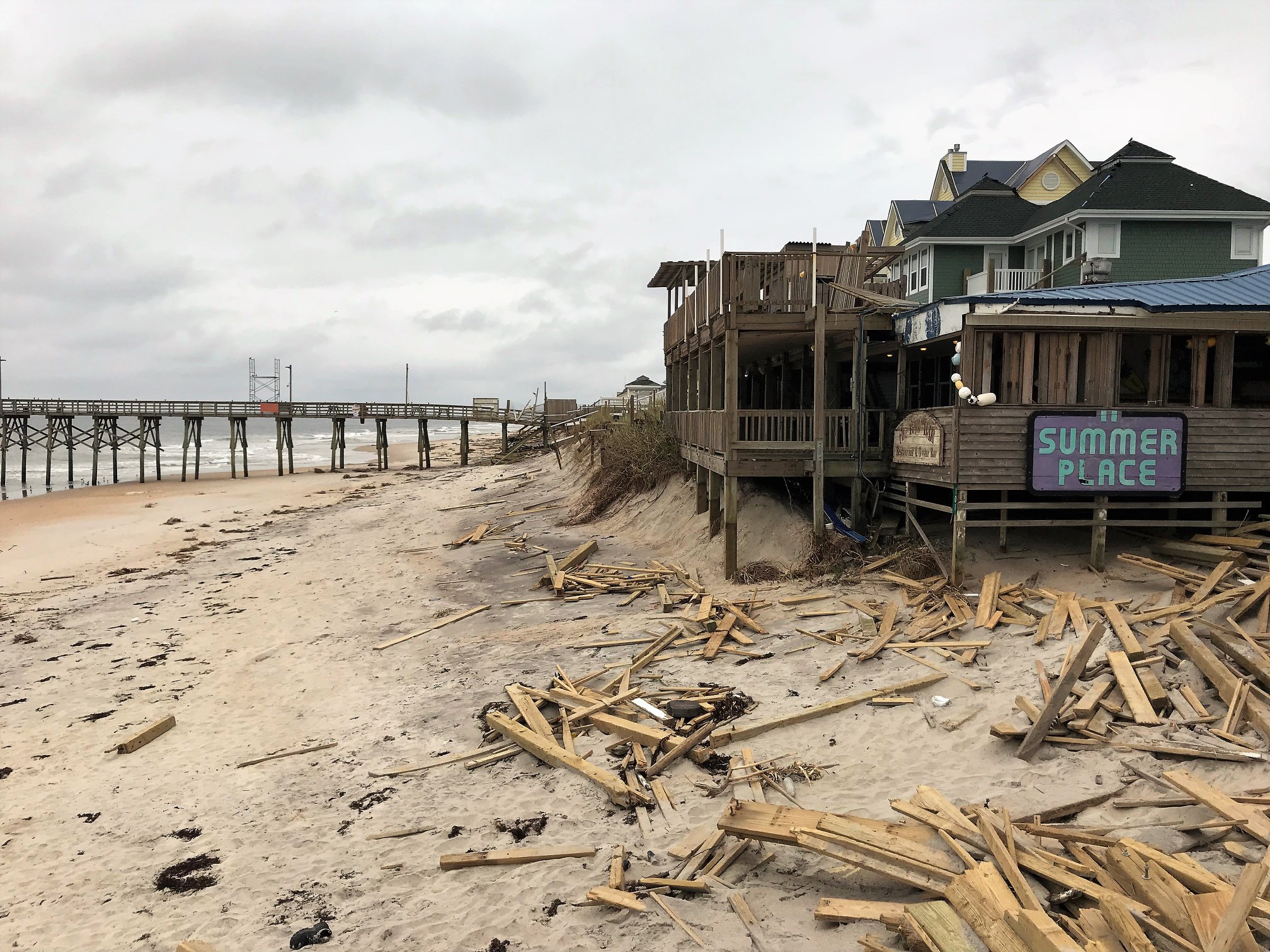Wind Damage? Check Insurance Incentives When Making Repairs

Many coastal buildings are underprepared for wind and rain from hurricanes. As homeowners in North Carolina’s coastal region repair damage related to Florence and Michael, they should take note of insurance incentives to increase wind resistance by selecting construction options.
“Installing wind-resistant features can protect buildings and potentially save homeowners money,” says Spencer Rogers, North Carolina Sea Grant’s coastal construction and erosion specialist. “Options to receive insurance rate credits for these protections are available through private insurance companies and state mandated wind pools.”
The wind pools presently are offering free policy endorsements that may reduce costs when repairing or replacing roof coverings on certain buildings, Rogers adds. “Speak with your insurance agent and adjustor for details regarding your property.”
Since 2011, insurance rate credits have been available for wind-resistance features in coastal buildings, as the North Carolina General Assembly directed through the N.C. Department of Insurance. The goal was to develop discounts to encourage better wind-resistant buildings. These discounts are available in 18 coastal counties. Private insurance companies and the state-mandated wind pools are required to offer them.
Residential Windstorm Mitigation Credits are available through private insurance companies and through the pools in coastal North Carolina. Two separate discount options are available for common homeowner or dwelling coverage. If you have a qualifying building, when you receive your annual renewal bill it should include the Advisory Notice to Policyholders Residential Windstorm Mitigation Credits Available. Credits are also available for framed buildings for homeowners, dwelling, and wind-only coverage.
With masonry buildings, the insurance territory numbers vary with time and building type, but the highest discounts are generally closest to the ocean shoreline.
The first type of these credits offers a discount for a hip roof and/or window protection via impact glass or certified storm shutters. Each option qualifies for about a 4 to 5 percent discount on the wind/hail coverage cost. You can combine them for a 9 to 10 percent discount.
A second discount option for “Fortified” buildings is based on an existing program developed by the Insurance Institute for Business and Home Safety, a nonprofit insurance trade group. Three levels of discounts are offered for existing or new houses, identified as Bronze, Silver and Gold, each providing about a 4 to 6 percent discount on the wind and hail premium.
The Fortified certificate is good for five years. An evaluator can re-inspect the house to extend the discounts for another five years.
A separate discount is available for new construction: Hurricane Fortified for Safer Living. In hurricane areas, the design requirements are for the local building code’s wind speed plus 20 mph. There also are code-plus flood standards, if located in the floodplain. Hurricane Fortified for Safer Living offers the highest discounts: 10 to 17 percent on wind-only coverage.
More recently, the N.C. wind pools have added pilot endorsements that may reduce costs when repairing or replacing roof coverings on certain coastal buildings.
The first pilot endorsement is only available in the beachfront territories, generally the N.C. barrier islands. If the roof covering on an insured building is damaged more than 50 percent, the free policy endorsement offers to pay for the claim, plus the added labor cost of a Fortified Evaluation and the added construction cost to qualify for Fortified Bronze.
A second pilot endorsement is now being offered in 18 coastal counties. If an insured building is reroofed, with or without a damage claim, the building may qualify for reimbursement of up to $600 for the cost of the Fortified Evaluator that results in a Fortified Bronze certification.
Rogers also has prepared a detailed memo about potential discounts and credits available to qualifying insured homeowners. The document includes links to more resources and information: go.ncsu.edu/WindInsuranceIncentives.
This article was published in the Autumn 2018 issue of Coastwatch. For reprint requests, click here.
- Categories:


